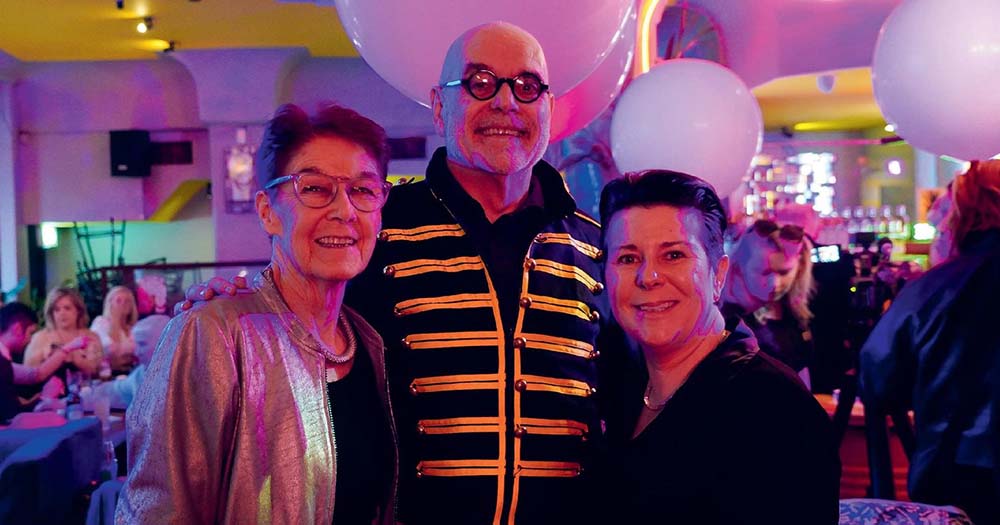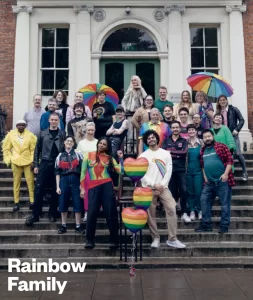Prom – or ‘the debs’ as it’s more commonly referred to in Ireland – means different things to different people. For some, it’s a chance to be crowned king or queen, for others, it’s a chance to get dressed up, and for most, it’s a last chance to party with school friends. But for many queer people, it wasn’t that simple, which makes the Bealtaine Festival’s LGBTQ+ prom all the more special.
Prom is a marker for the end of school and the first steps into adulthood. While this rite-of-passage is celebrated by wider society, it is not always a ceremony that LGBTQ+ people are able to fully partake in. For many, they feel ostracised, unable to be their true selves or unable to share the momentous occasion with the ones they love.
Inspired by the short US documentary – Senior Prom: LGBTQ+ Seniors Get the Prom of Their Dreams – the organisers of this year’s Age and Opportunity Bealtaine Festival decided to try something new. They spun tradition and gave members of the LGBTQ+ community a chance to celebrate prom the way they want to.
Age and Opportunity Arts Programme Manager and Artistic Director of the festival, Dr Tara Byrne, shared, “I think for us, one of the things we’re always trying to do is to be as diverse a festival as possible in terms of the kind of events we put on and to think as widely as possible about people that we want to come to our events… Diversity is really important because age is something that people are lumped into in one big homogeneous group, so it’s about breaking that up.”
Produced by Dani Gill, the Performing Arts Curator of the festival, the night included performances from Mr Pussy, Tina D Parton and The Wild Geeze, and music from DJ Ruth Kavanagh.
Dani explained, “We were talking about doing an event that would be like a debs night for people who didn’t get to do that with a partner of their choice… I got to put together the lineup, and I wanted it to be a nice mix of performers that we love and know, and then also a lot of audience participation.”
LGBTQ+ rights activists and community stalwarts Patricia Carey, Ailbhe Smyth and Ciaran McKinney recalled their own debs:
Patricia: “Well, it’s so much fun because there was 12 of us in my school in 1989, and we boycotted the debs because we thought it was rubbish. We met in Crumlin – we went to Loreto College, Crumlin – and we went to Abrakebabra, and then we rocked up to where the debs was on, and we laughed at all the girls in frilly dresses. And four of the 12 turned out to be queer.”
Ailbhe: “Well, it was a very, very long time ago, but what I remember most was that I had this incredible plumcoloured dress, it was brilliant. But I asked this chap to go with me – his name was Brian – and he said no. I didn’t know why. I mean, he obviously knew something about me that I didn’t know, so he said no. And I went on my own, and I had an absolute ball, and it’s been like that pretty well ever since, actually.”
Ciaran: “I guess for me, it’s different because I did go to… well, I went to Trinity Ball with guys as partners for years. But for me, what’s really important is that we’re celebrating the whole idea of festivity and older queers and just all being together. It’s great.”
Artist Jim Harkin and broadcaster Ian Fox have been together for 58 years. Jim shared the changes he has recognised in Ireland’s LGBTQ+ community.
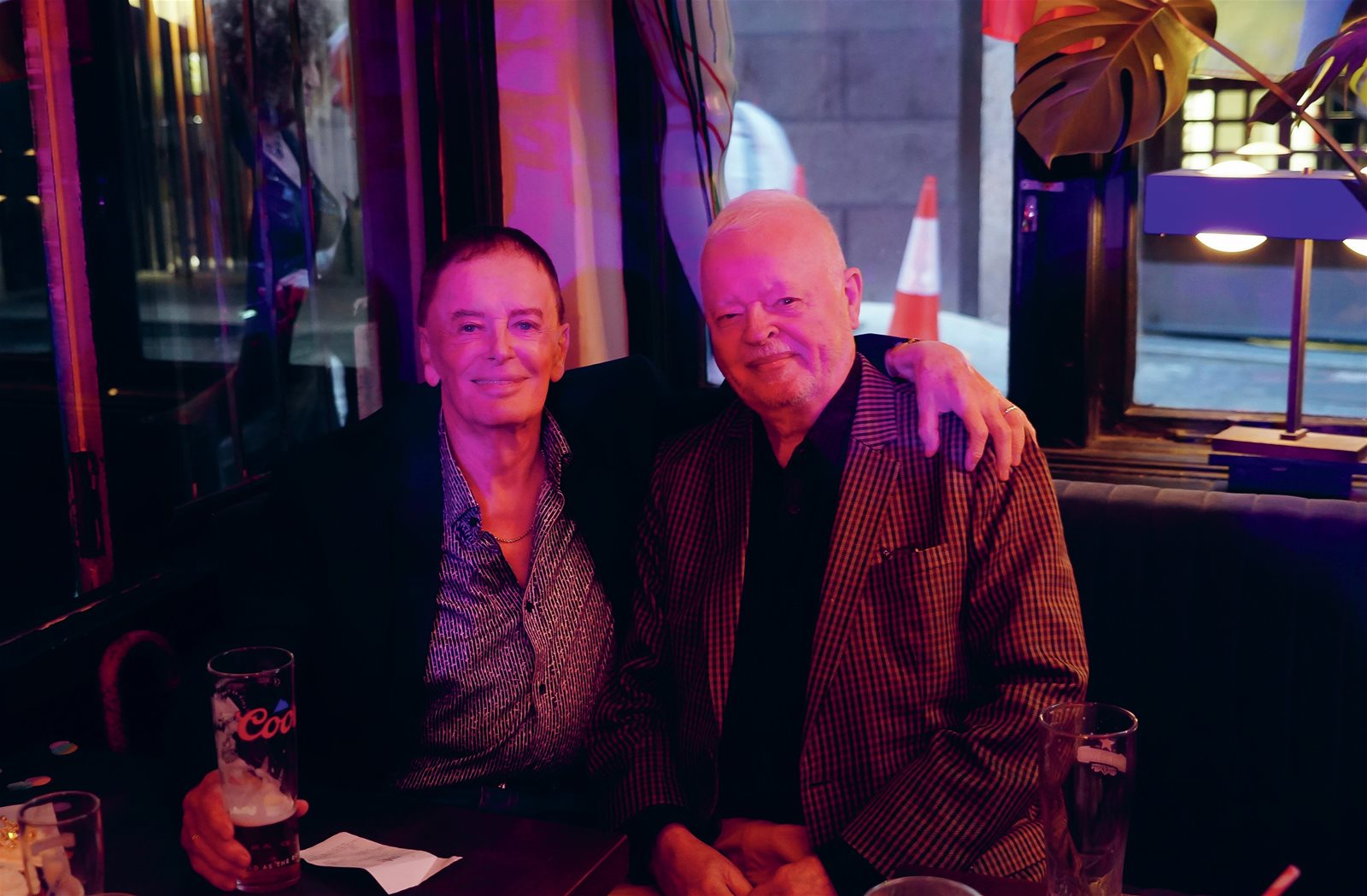
Jim: “Before I came totally out – I came from Donegal – I went to proms in borderland dancehalls and things like that. And gay guys didn’t come out, but you know, I remember proms well.
“(Tonight) it’s wonderful, and I’m glad to see the girls are out because when we came out first in the ’60s, we knew Nell McCafferty and a few of the girls, maybe six or eight of them, and that was all there was. Girls didn’t appear, and it was so sad because we knew (lesbians) were out there. But look tonight, look at how the world is changing. Thank God.
“It wasn’t easy for us because we weren’t legal for about 40 of our years together, it was shocking, you know. It’s a different Ireland, how it’s changed. But we didn’t give a shit because we were very politicised by David Norris and other people. And we helped him all the way to Europe with fighting this and that, women’s rights, gay rights, AIDS, you name it.”
Activist Lynda Sheridan shared what it meant to attend Bealtaine’s LGBTQ+ prom as an openly trans woman.
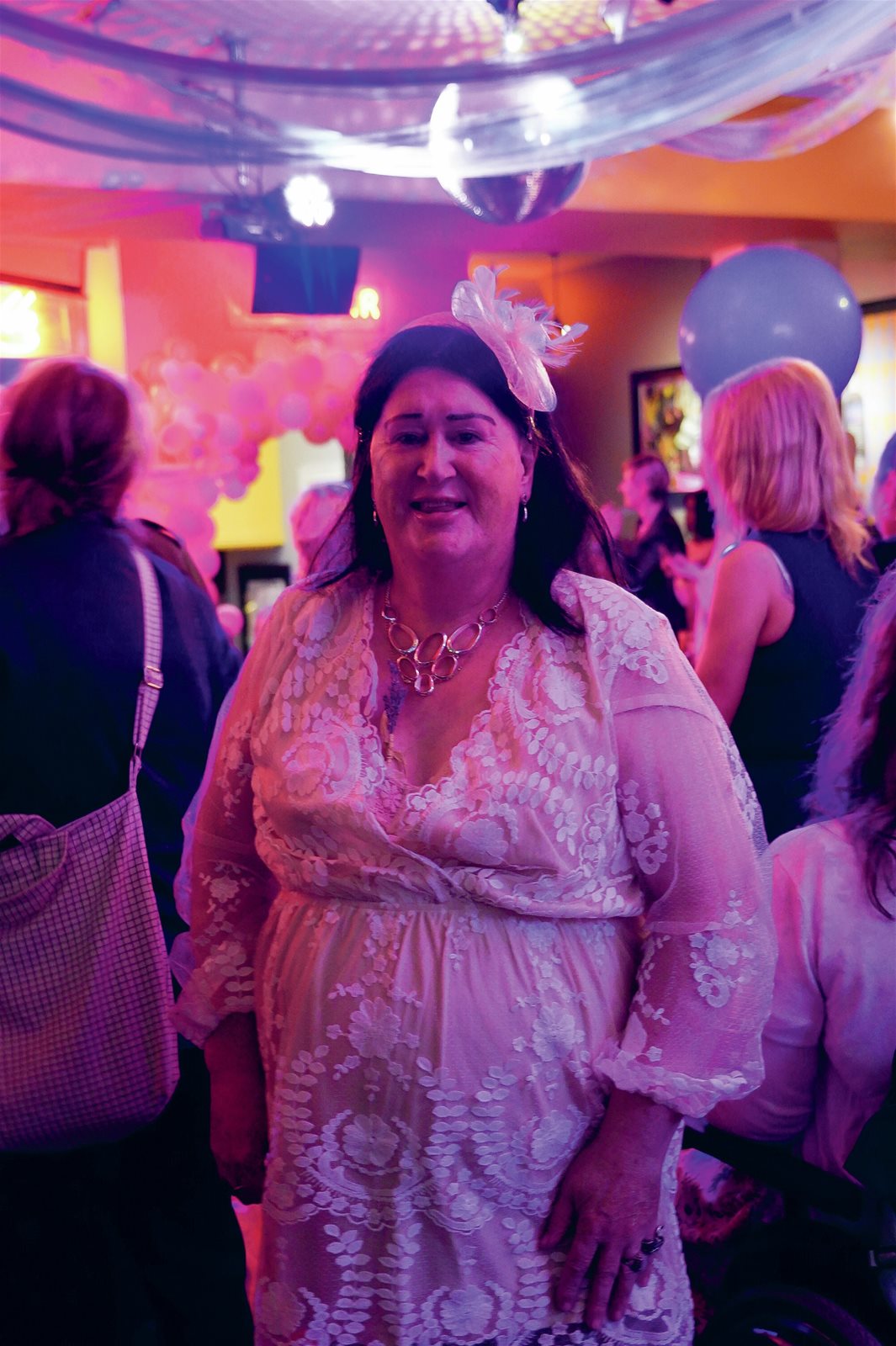
Lynda: “I never thought I would ever see myself at (prom). It’s a time to be outrageous and not give a damn, so I wore the skimpiest dress I could find, and I don’t care. “I have survived cancer over the past two years, and I thought that was the end when I got that diagnosis, so I think these things are really important for our community.
“So many of us missed out on it, and of course, me for a different reason, I wouldn’t go to it even if I was offered it because it would have been the wrong one for me, you know, so my journey brought me here today. That’s amazing. That is amazing the way my journey… finally, all these years later, I’m at a prom with my community that I love.”
Debs first-timer Stephanie Aherne revealed how the LGBTQ+ prom made her feel like a teenager.
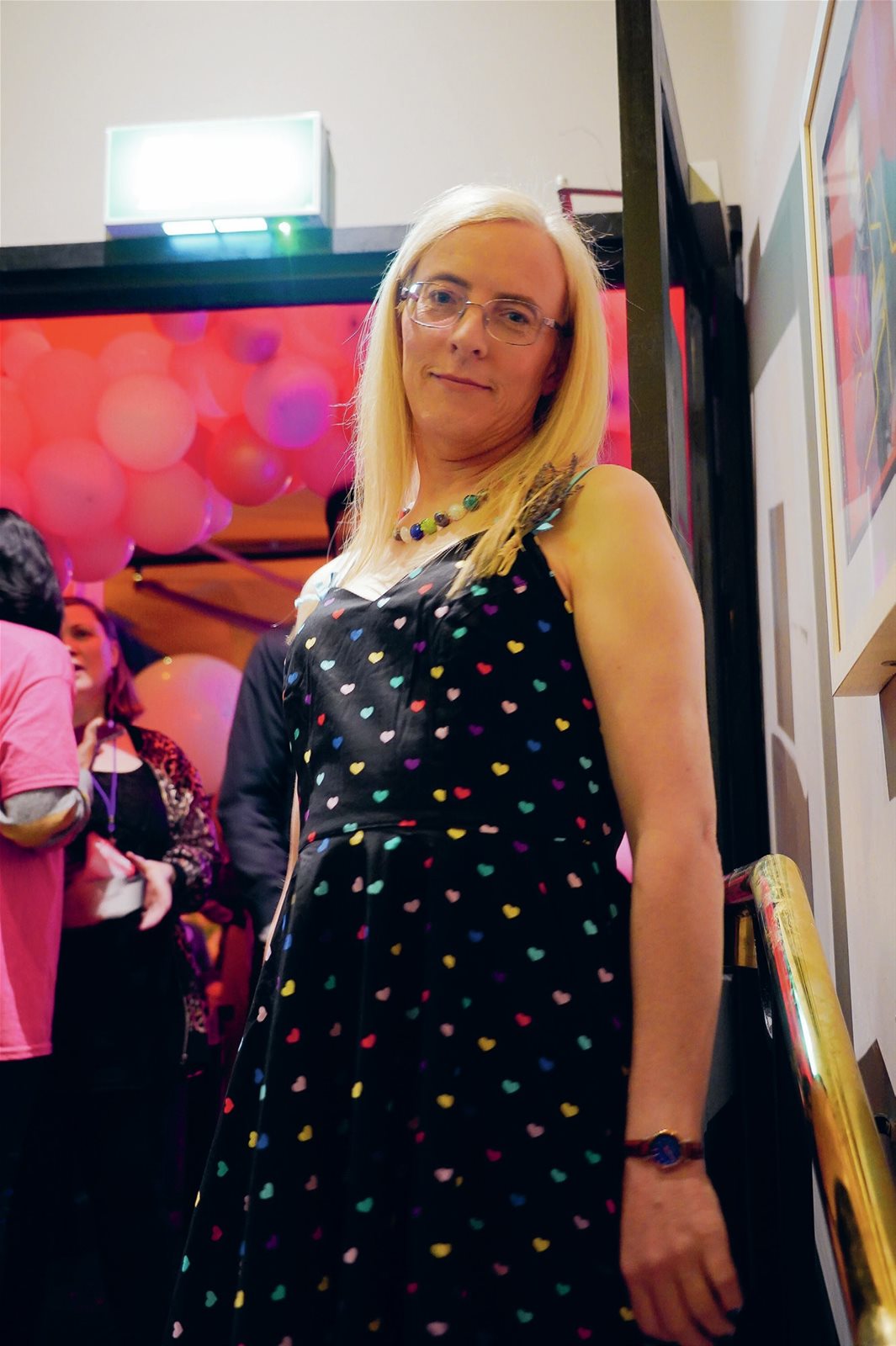
Stephanie: “This is my first time ever, at any debs, and it’s just absolutely amazing. When I heard about it, I just wanted to go so badly. It hadn’t even been properly announced yet. I just thought, ‘Oh my God, is this actually going to happen?’ And then, as soon as it came up, I bought the tickets.
“I was going to have a date, but we broke up, but it doesn’t matter, I’m still delighted to be here. It’s fine. Well, it’s just like teenage drama, if only I was still a teenager!”
Artist Maurice Cassidy shared the importance of the night.
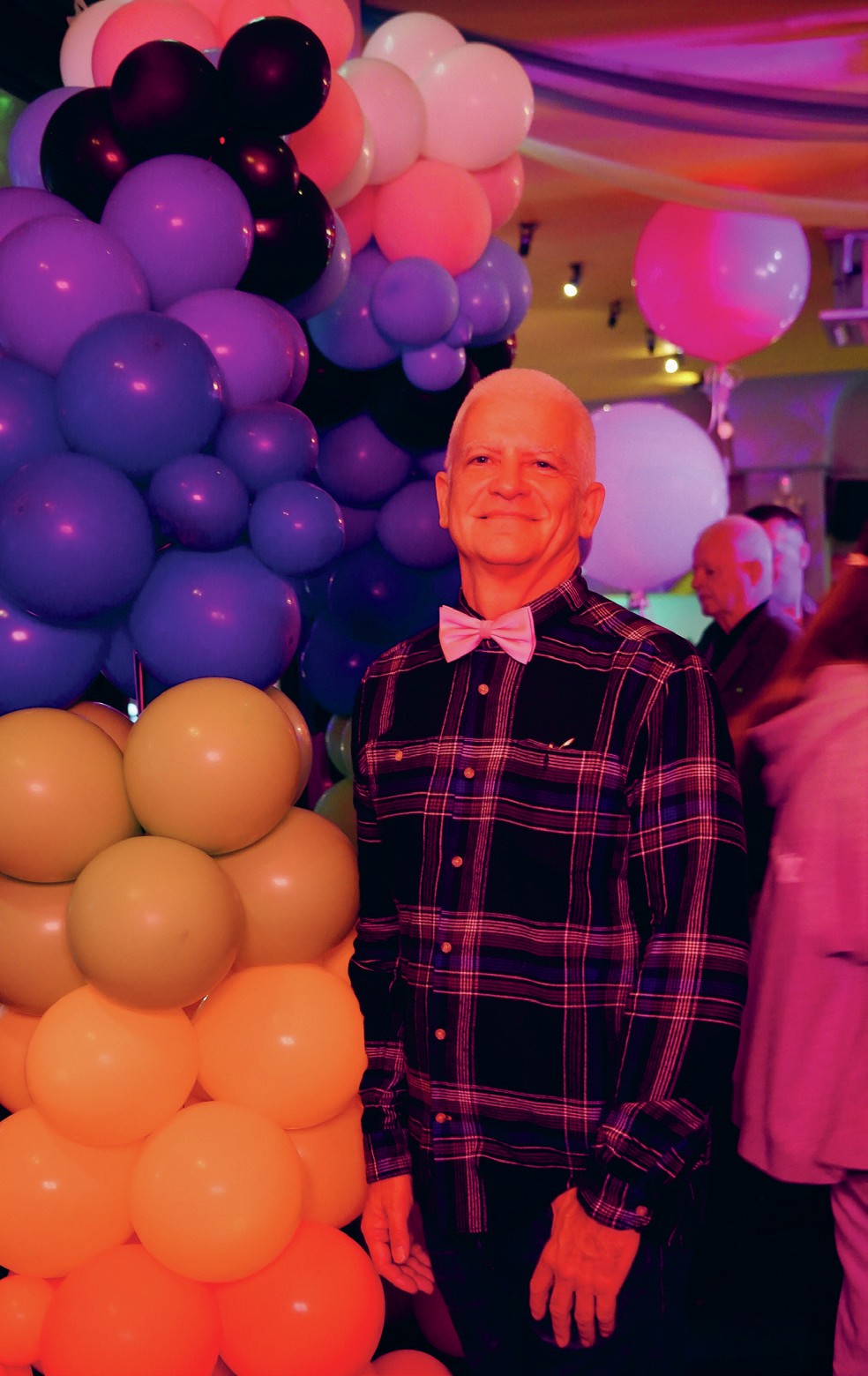
Maurice: “Well, basically, tonight is a night out, right?
I mean, it’s been a bit of fun and a chance to see some friends. But really, I mean, if I think about it, prom and that tradition is a rite of passage. It’s about learning how to date and learning how to have relationships, and as LGBTQ+ folk, we miss that.
“We miss out on that. It’s not part of our tradition and no one schools us in how to have relationships. And our relationships are not celebrated or not acknowledged at that age which is a big loss. And so I think it’s wonderfully affirming to have this and to experience it.”
Olive Wilson and her wife Patricia O’Grady have been together for 17 years.
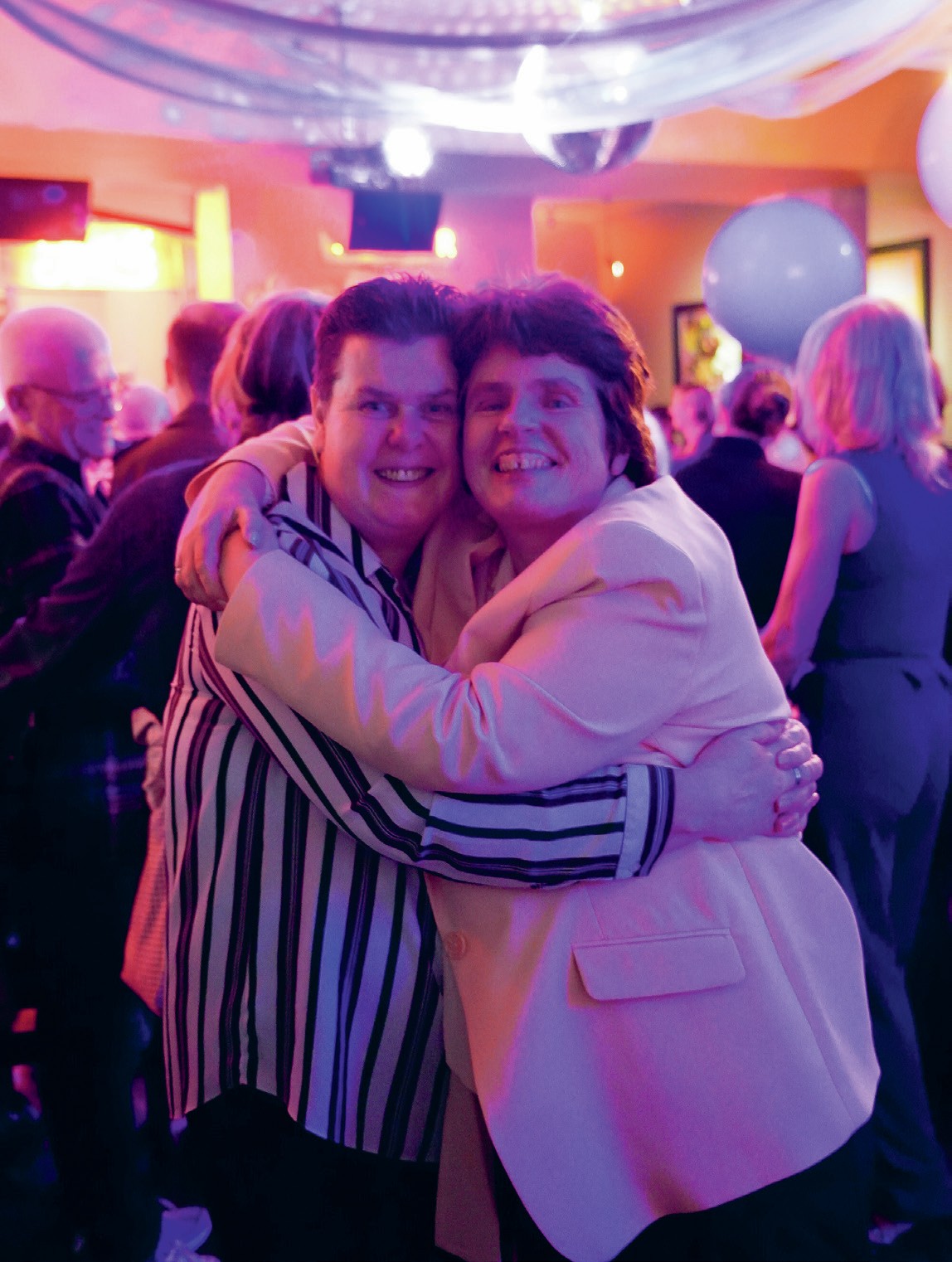
Olive: “(Tonight’s) very important because when I would have had the option of going to a (debs), you couldn’t go as a lesbian. You couldn’t go there, you know? And I didn’t go, you know, I would have felt very uncomfortable.
“I think that heterosexuality was forced on us, and I think that, for me, it was hyper-heterosexuality. I mean, the dress was like something in a Barbie movie and the hair and everything. It wasn’t just meet up with a guy and head off and go; it was hyper-heterosexuality that was forced on us that night, and I wasn’t playing along with that.”
Patricia: “I couldn’t come out years ago when I was in school. I had to make excuses like I was sick because, being gay, you couldn’t. Today’s generation is different and it’s lovely to see these people around 50 years and 30 years to show that there is still that strong love and bond from years ago.”
Olive: “Like tonight, what we saw was a lot of the myths that the extreme right perpetrated about our community were dispelled. There were two men in there, 54 years (together. The far-right) told us that if we got married on a Monday, we would be divorced by a Wednesday… and you’re looking at two men that were 54 (years together). How many heterosexual couples can say that they’re together 54 years, you know? So, to me, that’s what I mean. I saw the love that was in that room, including my own.”
This story on the Dublin prom for older LGBTQ+ people originally appeared in GCN’s June 2024 issue 384. Read the full issue here.
© 2024 GCN (Gay Community News). All rights reserved.
This article was published in the print edition Issue No. 384 (June 1, 2024). Click here to read it now.
Support GCN
GCN is a free, vital resource for Ireland’s LGBTQ+ community since 1988.
GCN is a trading name of National LGBT Federation CLG, a registered charity - Charity Number: 20034580.
GCN relies on the generous support of the community and allies to sustain the crucial work that we do. Producing GCN is costly, and, in an industry which has been hugely impacted by rising costs, we need your support to help sustain and grow this vital resource.
Supporting GCN for as little as €1.99 per month will help us continue our work as Ireland’s free, independent LGBTQ+ media.
